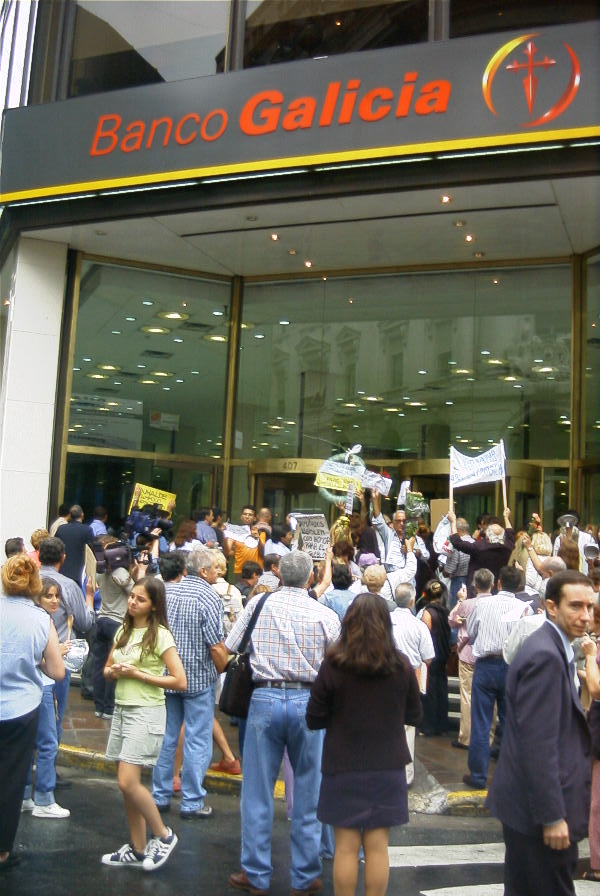The great blow to officialism during the primary elections (referred to as the PASO) in Argentina has only deepened the current crisis.
To understand how we’ve arrived at the umpteenth financial upheaval that began around a year ago in Rio de la Plata, Argentina, we must explore crucial events that took place between August and October of 2018, specifically focussing on the role of the IMF in the crisis.
On the 20th June, 2018, the Argentine government and the IMG signed the biggest stand-by agreement in the history of the country’s dealings with the financial institution. In exchange for a rescue deal of 50,000 million dollars, the Argentine government committed to achieving three different types of goals: the first, a fiscal goal to drastically reduce the public deficit, the second, a goal relating to inflation, and finally a goal of maximum and minimum fluctuation in the value of the national currency.
However, the efforts of the authorities in Argentina were so poor that in August of 2018, the country failed the first technical inspection of the IMF, something that has never occurred in Argentine history.
The failure to comply with the requisites led to the immediate suspension of the agreement and renegotiations of the terms, which followed the resignation of the ex-director of the central bank, Caputo.
In any ordinary context, a hardening of the position of the IMF would have been expected, especially given the lack of seriousness of Argentina. However, the redefinition of the terms of the agreement was announced in October of 2018, and it contained a series of surprising and unprecedented measures.
The measure represented a clear violation of Article VI of the IMF statue, that prohibits the IMF from financing capital flight with its loans
Firstly, as a sour prize for its poor efforts, Argentina received a higher amount than had previously been agreed (57 thousand million dollars). Secondly, the inflation and capping of the fluctuation of exchange rate goals were completely eliminated.
Finally, they allowed for the central bank to intervene in the exchange market, selling reserves in dollars to strengthen exchange rates.
It’s worth highlighting that the last measure was disproportionate, given that it is much like financing the powerful flight of capital with IMF dollars that until then had characterised the Argentine economy.
In this vein, the measure represented a clear violation of Article VI of the IMF statue, that prohibits the IMF from financing capital flight with its loans.
If that wasn’t enough, the altered version of the agreement also modified the timeline for payments. 90% of all resources loaned to Argentina were to be handed out in 2019, an electoral year, allowing the government of Macri almost complete control over these finances. Vice versa, Argentina only has to start paying back the loan in 2021.
In other words, it’s clear that in October 2018, the IMF made a clear and radical decision: to become a key political actor that would create the necessary conditions for the reelection of Macri.
In fact, the following months were characterised by unusual stability of the exchange rate, that left many observers thinking the crisis was coming to an end and that Macri was on his way to an easy victory, but things were much more complicated.
What was mistaken as the first signs of economic recovery were in fact the eye of the storm. Financial actors and investors continued to be wary, but accepted to change their behaviour due to the unconditional political support the Macri administration received from the IMF.
As such, the unprecedented intervention of the IMF has created an element of fragility in the Argentine financial system: if the IMF guaranteed their unconditional support to Macri, any kind of electoral setback would imply an immediate currency exchange race, given that economic actors have associated the end of Macri with the end of IMF assistance and thus, with the abrupt increase in the probability of an Argentine default.
In the midst of the chaos, Macri has announced a set of extraordinary measures with the intention of maintaining the spending power of Argentines
When Alberto Fernández, opposition candidate for the presidential elections, won the first round (the PASO) by a large margo of 15 points, this fear materialised.
The financial and exchange rate storm began on Monday, leading the peso to depreciate by almost 30%, with a huge increase in risk for investments (currently at 1879 points), and a collapse of financial assets.
The ridiculous reaction of Macri, who has blamed the Argentine electorate for the crisis, then later apologised, justifying his comments with a ‘lack of sleep’, is not the most serious issue in post-first round Argentina.
The real issue is that in the midst of the chaos, Macri has announced a set of extraordinary measures with the intention of maintaining the spending power of Argentines: a raise of 5% in state salaries, a drastic reduction on salary taxes, and the elimination of VAT on basic items of consumption.
These measures imply increased public spending, therefore mean failing to comply with the only goal set out in the second agreement with the IMF: the fiscal goal to reduce the public deficit.
In other words, Argentina has just blown up the agreement with the IMF in the midst of a serious political and economic crisis, which is personified in the resignation of the Finance Minister Nicolas Dujovne, the guarantor of the agreement with the IMF.
If it is even possible to renegotiate a third agreement with the IMF, it’s impossible to say what the terms could be in the current political context.
The only certainty is that the partisan and irresponsible conduct of the IMF has contributed to the disaster that Argentina currently finds itself in. If economic actors don’t find peace and calm in order to reduce the volatility of the market soon, this could just be the beginning of a profound crisis for Argentina.










